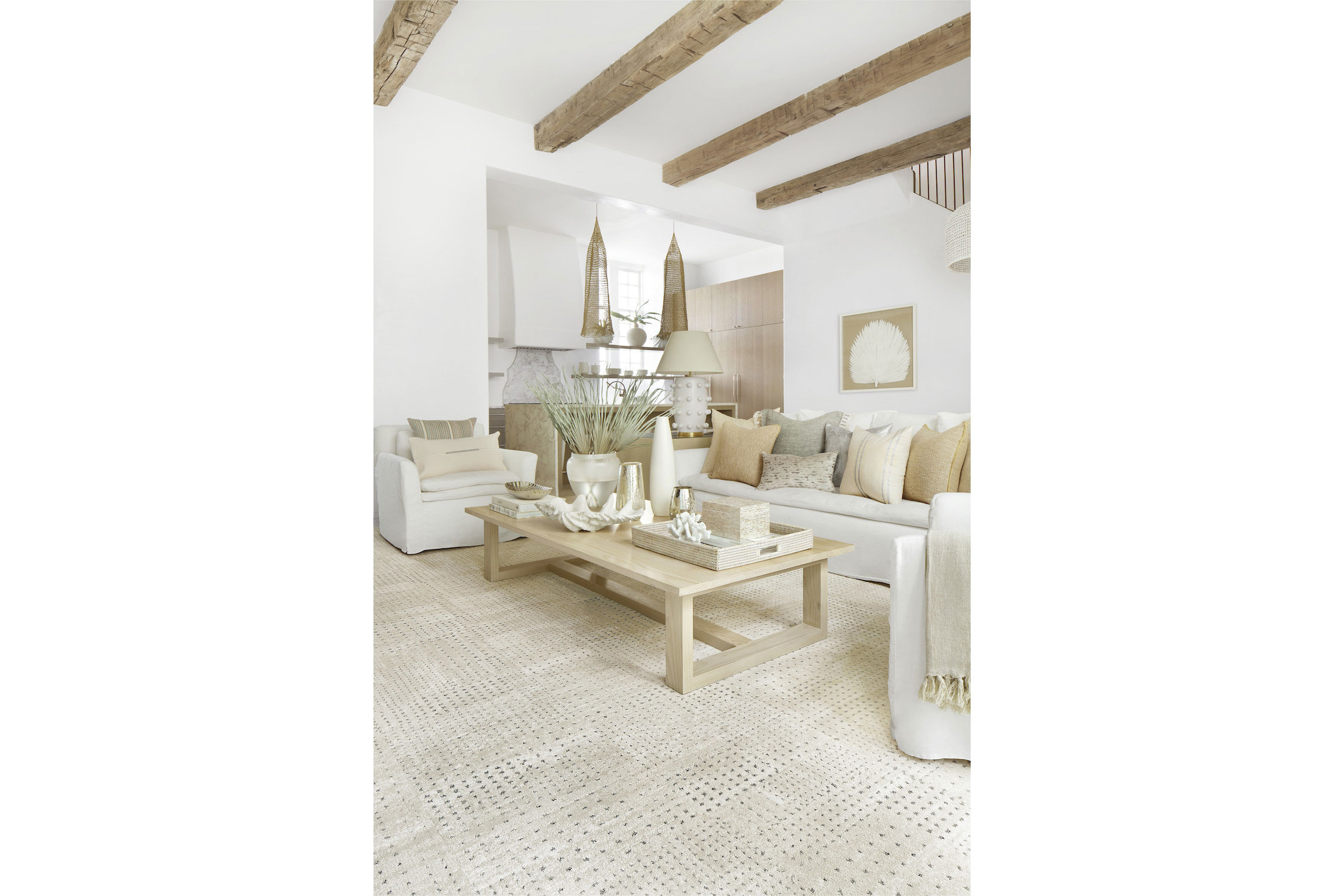FLOR, a high-end area rug brand for homes, offices, and every space in between, commemorates ten years of area rugs featuring Aquafil’s ECONYL® regenerated nylon that blends beautiful design, smart functionality, and environmental responsibility into all the spaces people live. The premium design brand began using ECONYL nylon in 2011 and was the first flooring company to begin using recycled nylon in its products. Today, ECONYL regenerated nylon, a sought-after responsible solution for well-known fashion and interiors brands, is featured in most FLOR area rugs, rather than brand-new nylon that uses new resources.
ECONYL is made from 100% waste—fishing nets, textile scraps, old carpet, etc.—that would otherwise pollute the Earth. The regenerated nylon performs the same as virgin nylon and can be recycled, recreated, and remolded infinitely. Not only a waste solution, ECONYL reduces the global impact of nylon by up to 90% compared with the material produced from oil.
“Aquafil and FLOR began working together ten years ago, all thanks to a shared interest in creating responsibly sourced products,” said Giulio Bonazzi, chairman and CEO at Aquafil. “Our efforts to create a circular supply chain led to the development of ECONYL in 2011 and, even in those early days, FLOR fully embraced our vision and became one of the first companies to embrace sustainable design before it was commonplace. That same year, they began to convert their existing products to our yarn system, creating beautiful area rugs that integrate environmental responsibility into all the spaces people live. This is aligned with the brand’s efforts to continually reduce the carbon footprint of its products, which we’ve supported over the last decade.”
FLOR’s use of regenerated nylon in its carpet tile is a key part of its efforts to lower the carbon footprint of its products. Recently, the company introduced its new backing, CQuestTMGB, which is made of post-consumer recycled content from carpet tiles, bio-based additives, and pre-consumer recycled materials, which are net carbon negative. With its combined new backing and yarn made from regenerated nylon, FLOR offers area rugs that look beautiful while being good for the planet.
“As a longstanding Aquafil collaborator, we at FLOR are honored to celebrate ten years of including ECONYL regenerated nylon in our beautiful, smart, and responsible area rugs,” said James Pope, General Manager of FLOR. “Our sustainability journey is woven into who we are—like the yarn in our rugs—and with thoughtfully sourced materials and a commitment to lower our carbon footprint, our products are designed with our customers and the Earth in mind.”
For more information, visit FLOR.com/responsible.
About FLOR
FLOR, the premium design brand of Interface, has brought high-end area rugs to homes, offices, and every space inbetween since 2003. FLOR carpet tiles are beautiful, easy to install, and responsibly sourced. Our customizable designs are engineered for high-traffic spaces, from family rooms to conference rooms. For more information, visit FLOR.com.
About ECONYL
Yarn by Aquafil USA ECONYL regenerated nylon is made 100% from nylon waste like fishing nets and reclaimed carpets. In 2007, Aquafil established the Energy & Recycling operational unit to boost the sustainable activities of the Aquafil Group. Thanks to R&D, the ECONYL® Regeneration System was created in 2011 and is the world’s most efficient industrial system for the production of regenerated nylon six and boasts no loss of quality after reclamation and transformation of nylon waste. Aquafil USA, and its Italian-based parent company Aquafil S.p.A., are committed to improving the environment by pioneering sustainability initiatives to ensure a brighter future for tomorrow. For more information, visit ECONYL.com.
About Aquafil
Since 1965, Aquafil has been one of the leading players, both in Italy and globally, in the production of polyamide 6 (nylon 6). The Aquafil Group has a presence in seven countries on three continents, employing more than 2,900 staff at 18 plants located in Italy, Scotland, Slovenia, Croatia, the US, Thailand and China.


